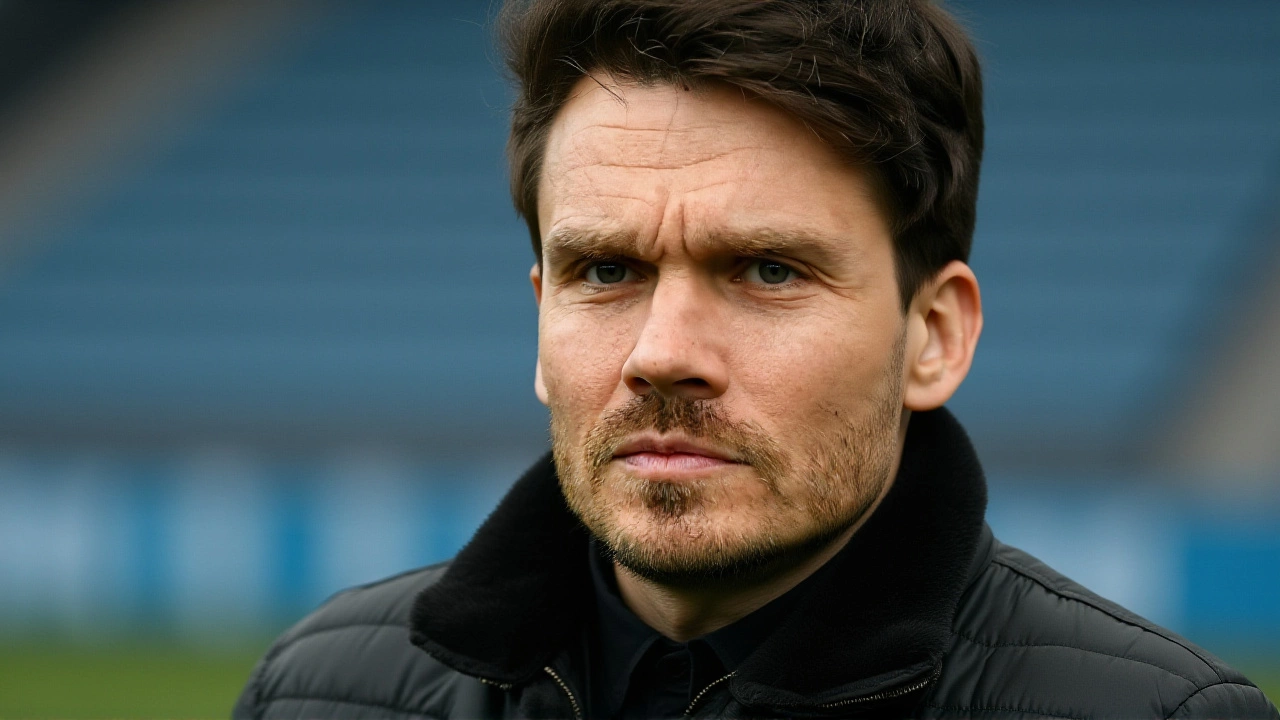Sheffield Wednesday’s Danny Röhl departs early, leaving club in limbo

When Danny Röhl, head coach of Sheffield Wednesday Football Club walked out of Hillsborough Stadium on 29 July 2025, the surprise was palpable. The 36‑year‑old German, who signed a contract extension that should have kept him at the club until 2027, instead left the Championship side just 20 months later, sparking a flurry of questions about what really happened behind the scenes.
From Saxony to Sheffield: A quick look back
Born in Zwickau, Saxony, on 23 March 1989, Röhl cut his teeth on the pitches of FSV Zwickau and later FC Sachsen Leipzig. He retired as a defender in 2013 and immediately pivoted to coaching, serving on the backroom staff of a string of high‑profile clubs – first at RB Leipzig, then a stint with Southampton Football Club, followed by a role at FC Bayern Munich, and finally an advisory post with the German Football Association. During the UEFA European Football Championship 2024, he appeared as an ITV pundit, offering analysis that caught the eye of several English clubs.
Röhl’s two‑year spell at Sheffield Wednesday
He took the helm at Sheffield Wednesday on 13 October 2023, inheriting a squad that had just missed out on promotion the previous season. Over the next 89 competitive matches – a blend of league fixtures, cup ties and a handful of friendlies – his record settled at 34 wins, 21 draws and 34 defeats, a win‑percentage of exactly 38.20%. Those numbers tell a mixed story: the team improved its defensive shape, conceding 12 fewer goals than in the 2022‑23 campaign, yet struggled to find consistency against stronger opponents.
Key moments included a 3‑0 victory over rivals Barnsley in January 2024, a hard‑won draw against Premier League side Leeds United in the FA Cup, and a frustrating run of three consecutive losses in March 2025 that saw the Owls slip from 8th to 12th place. The club’s board, impressed by the upward trend, offered Röhl a two‑year extension in May 2024, locking him in until 2027.
The sudden exit and immediate fallout
Yet on 29 July 2025, a club statement announced that Röhl’s contract had been terminated by mutual consent. No official reason was given, but sources close to the board hinted at “strategic misalignment” and “differences over transfer policy”. The timing was odd – it came just weeks before the summer transfer window closed, leaving the Owls scrambling to appoint an interim manager and finalize a new squad.
Fans reacted with a blend of anger and bewilderment. Social media feeds were flooded with hashtags like #WhereIsRöhl and #OwlsNeedClarity. Season ticket holder Lucy Harding told the BBC, “We had a plan. Suddenly we’re back to square one, and the board isn’t giving us a straight answer.”
Views from the inside and outside
Club chairman David GreenFormer England manager Gareth Southgate, who coached alongside Röhl on the German national team’s coaching staff, weighed in on Sky Sports: “He’s a thoughtful manager. Sometimes the fit isn’t right, even if the numbers look decent.”
Football analyst Rebecca Taylor highlighted the contractual oddity: “A club signs a manager to a 2027 deal, then parts ways in 2025. It signals either a breach of trust or an undisclosed clause that was triggered.”
What’s next for the Owls?
The board has appointed assistant coach Mark Harper as caretaker manager while a search committee evaluates candidates. Rumors circulate about former Leicester City assistant John Stuart and ex‑Portsmouth manager Ian Crawley being shortlisted.
From a strategic perspective, the club faces two pressing challenges: stabilising the dressing‑room morale and navigating the summer transfer market without a permanent boss. Their current budget allows for a maximum net spend of £5 million, which limits options to free agents or loan deals.
Historical parallels and lessons
The Owls are not the first English club to terminate a long‑term contract early. In 2019, Leeds United dismissed head coach Marco Silva just 14 months into a three‑year deal, citing “philosophical differences”. The fallout likewise involved fan unrest and a hurried replacement that struggled for form.
Experts suggest that clear communication during contract negotiations and transparent performance metrics can reduce the likelihood of such abrupt separations. In Röhl’s case, the blend of modest results, a volatile transfer market, and possible disagreements over player recruitment appear to have tipped the scales.
Key facts
- Röhl’s tenure: 13 Oct 2023 – 29 Jul 2025 (89 matches)
- Record: 34‑21‑34 (38.20% win rate)
- Contract extension signed: May 2024, valid until 2027
- Departure announced: 29 Jul 2025
- Sheffield Wednesday’s league position at exit: 12th in the Championship
Frequently Asked Questions
Why did Sheffield Wednesday end Danny Röhl’s contract early?
Club officials cited “strategic misalignment” and differing views on transfer policy. While no official details were released, insiders suggest the board wanted a more aggressive recruitment approach than the manager was comfortable with.
What impact does the departure have on Sheffield Wednesday’s summer transfer plans?
Without a permanent manager, the club’s ability to negotiate signings is limited. The board announced a provisional £5 million net‑spend cap, meaning they will likely focus on free agents, loan deals, and players familiar with the interim coach.
Who is likely to replace Röhl as head coach?
Assistant Mark Harper is serving as caretaker while the search committee evaluates candidates. Names circulating include former Leicester City assistant John Stuart and ex‑Portsmouth boss Ian Crawley, both of whom have Championship experience.
How does Röhl’s win‑percentage compare to previous Wednesday managers?
Röhl’s 38.20% win rate sits between Paul Cook’s 35% (2020‑22) and Darren Moore’s 41% (2022‑23). While not spectacular, it represented a modest improvement over the club’s struggling 2022‑23 season.
What does this episode tell us about foreign managers in the English Championship?
It highlights the delicate balance between a club’s ambitions and a manager’s philosophy. While foreign coaches bring fresh ideas, mismatched expectations on recruitment and playing style can lead to early exits, as seen with Röhl and earlier cases like Marco Silva at Leeds.